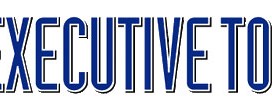Published in Fixed Ops Magazine 2014
See Published Article
Your Search Engine Optimization Guide
Claim your business listings and dominate local SEO.
Car dealerships big and small rely heavily on the local community for sales more than any other business. There was a time when simply hanging a colorful banner and some signs would bring people in by the droves. Then, it was all about purchasing a page in the phonebook, producing a TV ad, or a radio spot. Those things are still good to have on your marketing plan in todayâ??s world, but the serious return on investment is in SEO â?? search engine optimization. Dominating the local search results online is the single most important thing to do for your dealership because it reaches your customers when theyâ??re looking to buy your service.
97 percent of consumers start their search for a local business on the Internet. More importantly, 70 percent of mobile searches and 59 percent of consumers who used a PC lead to action within one hour. That ends up being around two thirds of consumers running a search query on a weekly basis.
You may be wondering: what exactly is a local search? A search is considered local when a person includes the name of the city and/or town within the search term (example: Hyundai dealers in Houston, TX). Since the majority of consumers are looking for your business in this way, it is terribly important to have accurate information shown across the web.
Major search engines such as Google, Yahoo, and Bing rely heavily on 3rd party data providers for nearly all the data that shows up in their local business listings. There are five different types of directories that house business data: data-aggregators, horizontal directories, industry-specific directories, region-specific directories, and unstructured citations.
Data-aggregators are organizations such as Localeze and Acxiom that compile information from detailed databases on businesses and then sell that information to others. These types of data providers basically feed your business info into a ton of other influential third-party sites, including Google.
Horizontal directories are listings on review sites such as Yelp and Yahoo. These listings are free to manage and increase our businessâ?? relevance and prominence in a specific city or region. They are almost always connected to maps and mobile searches.
Industry-specific directories are sites such as Carhelp and DealerRater. These are sites that are only focused on the business information in your industry. Many times, these listings are organized geographically, so itâ??s very beneficial for you to have your listing included on them.
Region-specific directories are sites such as Denver.com/places. These are a lot like the web edition of Yellow Pages because they contain business information for a specified region. Search engines trust these listings because they are local.
Unstructured citations can come from a ton of different places, blogs and social media being the main ones. They include the business name, address and phone number, but not in any particular order. (Thatâ??s why theyâ??re considered unstructured.) Popular sites in this category are Facebook, YouTube and Twitter.
By ensuring the information across all of these types of directories is accurate on your business, you are increasing your local SEO exponentially.
A Note about Mapping
Itâ??s not hard to notice that Google maps holds a dominant spot in search engine results. When people are searching for a local business, they want to know exactly where itâ??s located. Itâ??s the single most clicked on feature in any search result or listing and leads consumers back to your website. Itâ??s also the most eyegrabbing piece in local search results. Mapping is also huge in the mobilesphere; 80 percent of smartphone owners use their phones for GPS and to find local businesses. The ease of use is what makes this so popular among people looking for a service. It provides all of your information in one spot with intuitive design and easy-to-find directions. By ensuring your business has a marker on maps, you are guaranteeing a presence on local search.
What every listing needs
Now that you know the importance of local directories and listings, itâ??s time to get into the nitty-gritty of what information you need to include. Every site is different in the way they are organized, but the information is basically the same. Iâ??m going to go over the top 3 things every listing needs and why.
Categories
Categories are the single most important part of your listing (under your name, address, phone and website). Search engines use this information when deciding which businesses to show for a particular search query. Many times, if your business isnâ??t categorized properly (or at all), it isnâ??t showing up in local search. People run their search based on the category of business they are looking for. This idea stems back from the days of the Yellow Pages. Itâ??s simple and easy to find exactly what youâ??re looking for if itâ??s organized and straightforward.
Many business listings have an option to use more than one category under your primary category. A lot of dealerships donâ??t put a lot of thought into this when they really should. You can double your traffic if you choose the right keywords. Make sure your categories are relevant and describe what your business is rather than what it offers.
Consistent Business Information
Weâ??ve already touched on this subject, but itâ??s worth mentioning again. All of your listings should have the same name, address, phone number and web address. All in the same format. For example, if your business is A&B Dealership at 555 W Car Street, every listing needs to have it in exactly the same wording. Donâ??t have the abbreviated â??Wâ? on one listing and â??Westâ? on another. Or list it as â??A and B Dealershipâ? on one and â??A&Bâ? on another. Keep it consistent. Different variations in this information will negatively impact your SEO.
How does it impact your local SEO? According to Google, they improve search results by aggregating information about your business from all over the web. If it isnâ??t consistent, Google may not attribute reviews from third-party sites, or it may get confused with which information is right and create two listings instead of one. You may think two listings would help you get a boost, but it actually brings your rank down because itâ??s unclear which listing is correct.
Photos and Enhanced Content
Photos increase engagement. Engagement increases your ranking in the search engine. Itâ??s that simple. Google has put a lot of emphasis on photos and videos when determining where a business ranks in the local pack. Photos are also featured prominently in search results. They add value to your page and make it more resourceful.
There are some simple guidelines to remember when enhancing your listings with photos. Make sure the photos are clear and compelling. They are a representation of your business and should be considered as such. You donâ??t have to go out and hire someone to take professional shots of your store; using your phone is completely okay.
Take a bunch and choose only the best. If youâ??re having an event or sale, itâ??s a good idea to take pictures then, too. Itâ??s just like what you would do to increase Facebook engagement. Let the people know who you are and what you look like. The clicks will follow.
Keyworded Business Description
Your business description is what connects your listing to the people. It tells them all about your history and who you are. It needs to be appealing to readers and also contain SEO keywords that will help you get found. Do not write a business description that just has SEO keywords in it and doesnâ??t make any sense. The keywords need to be sprinkled in tastefully. You can use Google AdWords to find the hot keyword search terms to use.
Whatâ??s Next?
Now that you know the basics about your listings and what they need, you need to start getting out there and claiming your listings. Iâ??m going to go over the main ones to focus on first, with a small list of others that should be utilized. Claiming and optimizing your listings takes time, so be patient. Itâ??s not something that is going to immediately shoot your listing to the top overnight.
Google+ Local – Google is THE provider for search and maps. By claiming and optimizing this listing, you are staking claim on both mobile and desktop searches. Itâ??s also directly connected to all android devices. Best of all, itâ??s free. The process can be a little lengthy, but when done right, you wonâ??t regret it. Before you do anything though, run a search to see if you already have a Google Local business page. If you do, all you have to do is claim it and fill in all the blanks from the information I gave you above. If you donâ??t, youâ??ll have to create one. There are countless guides out there on this.
Bing Places for Business â?? Bing is the second most used search engine. This is an opportunity for you to increase visibility on the web. Bing is also connected to Appleâ??s iPhone as the default search engine for Siri. The mobile presence alone should be enough to convince you the importance of this listing.
Yahoo Local â?? Coming in as a close third, Yahoo Local is equally important. You can add or claim a basic listing for free, but if you want to enhance it with photos etc. itâ??ll cost you. This is the one listing where I would say a photo doesnâ??t matter as much. As long as you have your business name, address, phone and website information on there, youâ??re covered. You also have the option to add products and services to this listing for free. This is beneficial when someone is looking for a particular make of car you offer.
Other Listings â?? Once you claim and optimize the above three, you should get working on these listings as well. Yelp, Yellow Pages, Localeze, infogroup, Superpages, CityGrid, hotfrog and Nokia Here. If you want to dominate the local pack, get out there and start claiming those listings. Using my guidelines, youâ??ll be on your way to the top of the search results.
Peter "WebDoc" Martin
Latest posts by Peter "WebDoc" Martin (see all)
- The Yelp Check In Feature - February 22, 2019
- Climbing - September 29, 2015
- Still on the Zip Line - September 29, 2015
 TheWebDoc.tv A Breakdown of the Do's and Don'ts of Websites to Companies to Ensure their Websites are Working for them. Providing ongoing advice for the latest technology and marketing tools out there.
TheWebDoc.tv A Breakdown of the Do's and Don'ts of Websites to Companies to Ensure their Websites are Working for them. Providing ongoing advice for the latest technology and marketing tools out there.









